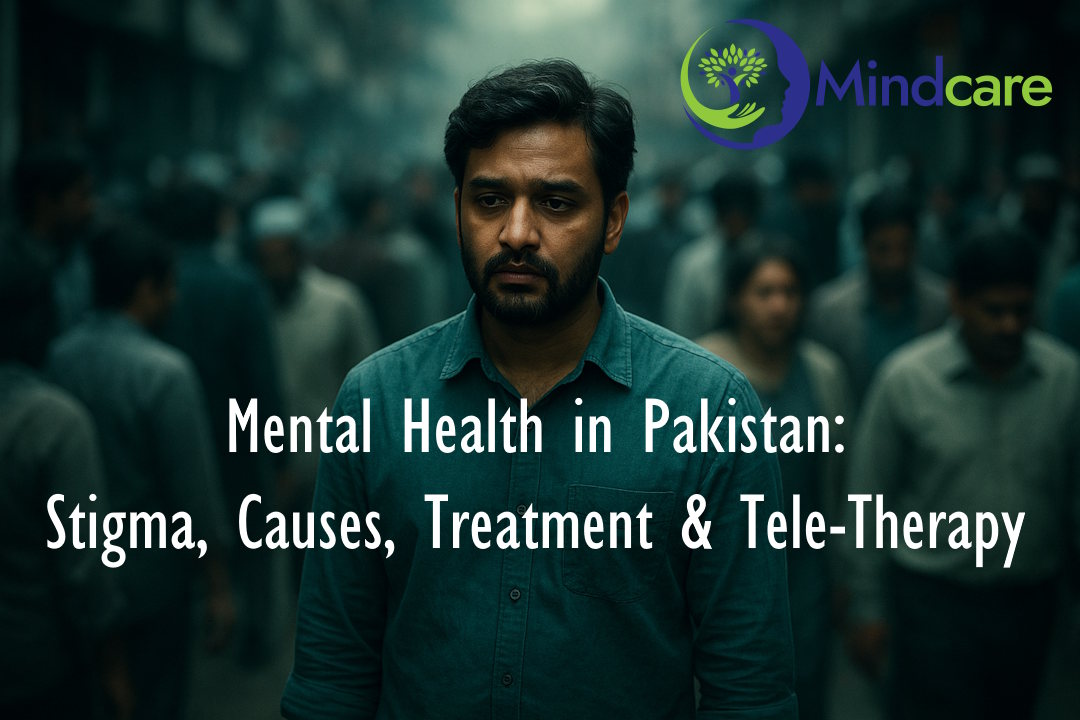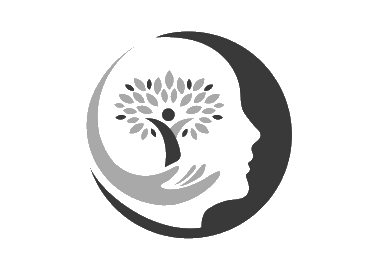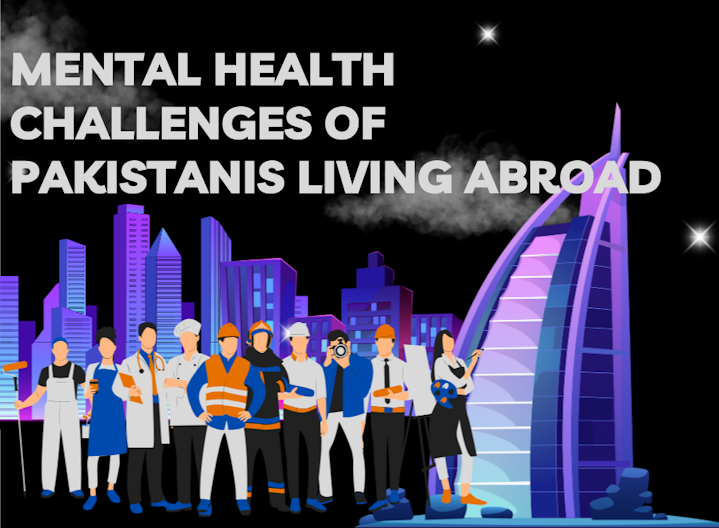A long, empathetic, culturally-aware guide explaining why mental health matters in Pakistan, how to spot early warning signs, practical self-help steps, and where to get confidential support.
What mental health really means
Mental health is more than the absence of illness — it’s the presence of emotional flexibility, healthy thinking and behaviors that let you live, learn and connect. It includes three interlinked areas:
- Emotions: feeling sadness, joy, grief, anger without being overwhelmed by them.
- Thoughts: the ability to notice and challenge harmful thinking patterns.
- Behaviors: actions and habits that support daily functioning and relationships.
When these areas break down, symptoms may emerge and, if untreated, develop into diagnosable conditions. The good news: early attention often prevents deterioration.
Stress vs. mental illness — how to tell the difference
Stress is a normal response to life's challenges: job loss, natural disasters, family conflict, political volatility. Mental illness is when distress becomes:
- Persistent (weeks or months)
- Overwhelming or incapacitating
- Disruptive to relationships, work, or self-care
If symptoms interfere with daily life over time, that's a sign to seek help. Early intervention is often sufficient; waiting for a crisis can make treatment longer and more complex.
Why so many people hide their struggles
Shame and fear are powerful. People avoid admitting anxiety or depression because they worry about:
- Social judgment or being labeled “mad”
- Negative effects on marriage prospects or workplace reputation
- Family reactions that prefer “fixing” problems privately
In many communities, mental suffering is framed as a personal failure or moral weakness. That silence prolongs pain and increases risks.
Why mental-health problems are rising in Pakistan
Multiple, overlapping causes raise vulnerability for many people:
Environmental and economic stress
Inflation, unemployment, energy crises, frequent disasters and security concerns amplify daily anxiety and reduce the bandwidth for coping.
Relationship patterns and parenting
Evidence suggests the single strongest protective factor is the quality of relationships. Childhood experiences — emotional validation, secure attachment, consistent parenting — build psychological resilience. Conversely, neglect, domestic conflict or emotionally cold environments increase risk over time.
Poverty, inequality and comparison
It’s not only absolute poverty that matters: perceptions of inequality and comparison via social media can be deeply harmful. When people measure themselves against an unattainable ideal, feelings of inadequacy grow.
Cultural norms
Gendered expectations — “men must be strong,” “women must sacrifice quietly” — limit emotional expression and help-seeking for everyone.
The myth of “chemical imbalance” and why it matters
Pharmaceutical messaging has promoted a simple story: mental illness = chemical imbalance. This narrative is attractive because it reduces blame and medicalizes suffering. But it's an oversimplification.
Modern research indicates that psychological distress arises from complex interactions between childhood learning, relationships, trauma, environment and biology. Medication can be lifesaving for some — especially in severe presentations — but for many, structured therapy, skills training, social support and environmental change are more central.
Over-reliance on medication has created harms: unnecessary prescriptions, dependency (particularly on sedatives and sleeping pills), and a narrative that discourages psychosocial solutions.
Sleeping-pill use and dependence — a serious concern
Pakistan has very high use of sedative and hypnotic medications (sleeping pills), often available with minimal regulation. This leads to:
- Widespread dependency in households
- Cognitive and memory effects with long-term use
- Masking of underlying distress without teaching coping skills
Medication should be prescribed by trained specialists and used as part of a broader care plan — not as the default response to sleeplessness or anxiety.
Why early intervention changes outcomes
When symptoms such as persistent sadness, panic, insomnia, or social withdrawal appear early, short-term therapy or skills coaching can prevent escalation. Delays of years are common; some studies and clinical reports indicate people may wait up to seven years before accessing care. Early help reduces risk of chronic illness, suicidal behavior, and long courses of medication.
Recognize early warning signs
- Lasting low mood or persistent irritability
- Sleep disturbances or appetite change
- Withdrawal from friends or activities
- Frequent panic or racing thoughts
- Problems concentrating, persistent hopelessness
Suicide: a public-health problem, not a moral failure
Suicide is often framed as individual failure — but it is better understood as a complication of unrecognized or untreated mental distress. It is a societal failure when someone reaches the point where they see no alternative.
Advocacy in Pakistan has helped decriminalize attempted suicide — an important step that prioritizes healthcare and confidentiality over punishment. Prevention requires community support, early detection, safe reporting practices and accessible crisis services.
Tele-therapy, helplines and scaling access
Therapists and helplines have expanded rapidly in Pakistan. Telephone counselling and video therapy allow people in Gilgit, Thar, and smaller towns to receive confidential help without traveling.
Telephone-based services can be free or subsidized and are especially helpful for early-stage concerns or when in-person care is unavailable. AI-assisted screening tools are also being tested to triage callers faster — but AI should complement, not replace, trained human clinicians.
Daily habits that strengthen emotional resilience
Practical steps you can start today to protect your mental health:
- Sleep routine: consistent bed/ wake times, limit screens before bed.
- Physical movement: 20–30 minutes of walking or light exercise daily.
- Breathing & grounding: simple breathing exercises reduce panic immediately.
- Social time: prioritize real conversations, not just social media.
- Limit substances: alcohol and sedatives mask feelings and worsen long-term outcomes.
- Journaling: express emotions privately to reduce rumination.
When to seek professional help
Consider contacting a mental-health professional if you notice:
- Persistent inability to function in daily life
- Frequent panic attacks or overwhelming anxiety
- Suicidal thoughts or plans
- Severe changes in sleep, appetite or weight
- Harmful substance use
Therapy is not “only for the rich” — many services offer sliding fees, free sessions, or low-cost group programs. Early help is both humane and cost-effective.
Where to get help — hotlines, tele-therapy and MindCare services
If you or someone you love is in immediate danger, contact local emergency services or go to the nearest hospital emergency department.
National & widely used helplines
- Aman Foundation / Emergency Helplines
- Primary mental-health helpline (e.g., Taskeen)
- Local hospital psychiatry emergency: contact your nearest public hospital
⚠️ If you are feeling suicidal right now: please reach out immediately. If you cannot call, message a trusted person, contact emergency services, or visit the nearest hospital. You are not alone.
MindCare.pk — how we help
MindCare connects you to licensed psychologists across Pakistan for confidential therapy and consultations. We offer:
- Tele-therapy (video/audio)
- Phone crisis support and triage
- In-person referrals where available
Book a confidential session with a MindCare professional
If cost is a barrier
Look for: university clinic programs, NGO phone lines (many provide free sessions), and community group therapy.
Conclusion & next steps
Mental health is health. Normalizing help-seeking, teaching emotional skills early, regulating medication use, improving access through tele-therapy, and changing public attitudes are practical actions that save lives.
Start small: talk to one trusted person, try one breathing exercise tonight, or schedule a single confidential session. Small steps build sustained change.
If you’re ready: Book a session with MindCare
- Reach out to one person and share how you’re feeling.
- Practice the 4-2-6 breathing routine every evening for 7 days.
- Limit screens 1 hour before bed; aim for a regular sleep routine.
- Book a single 45-minute session for emotional check-in.
- If suicidal thoughts occur, contact emergency services or a helpline immediately.




